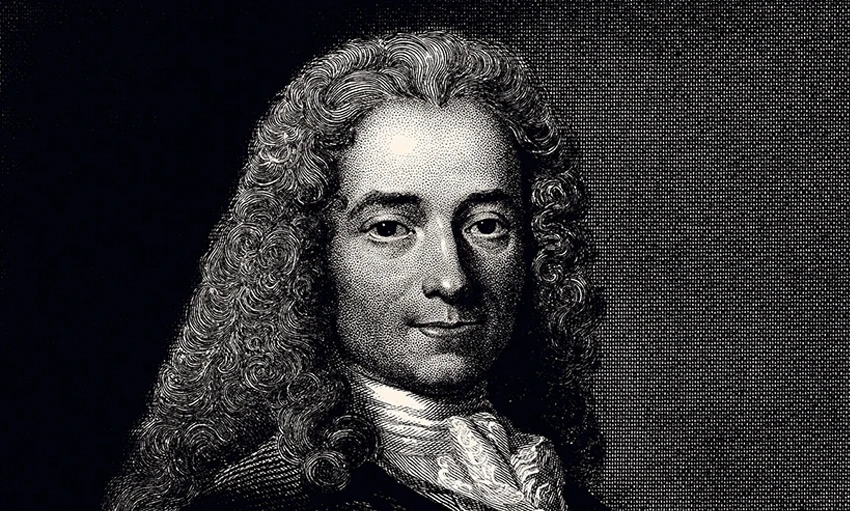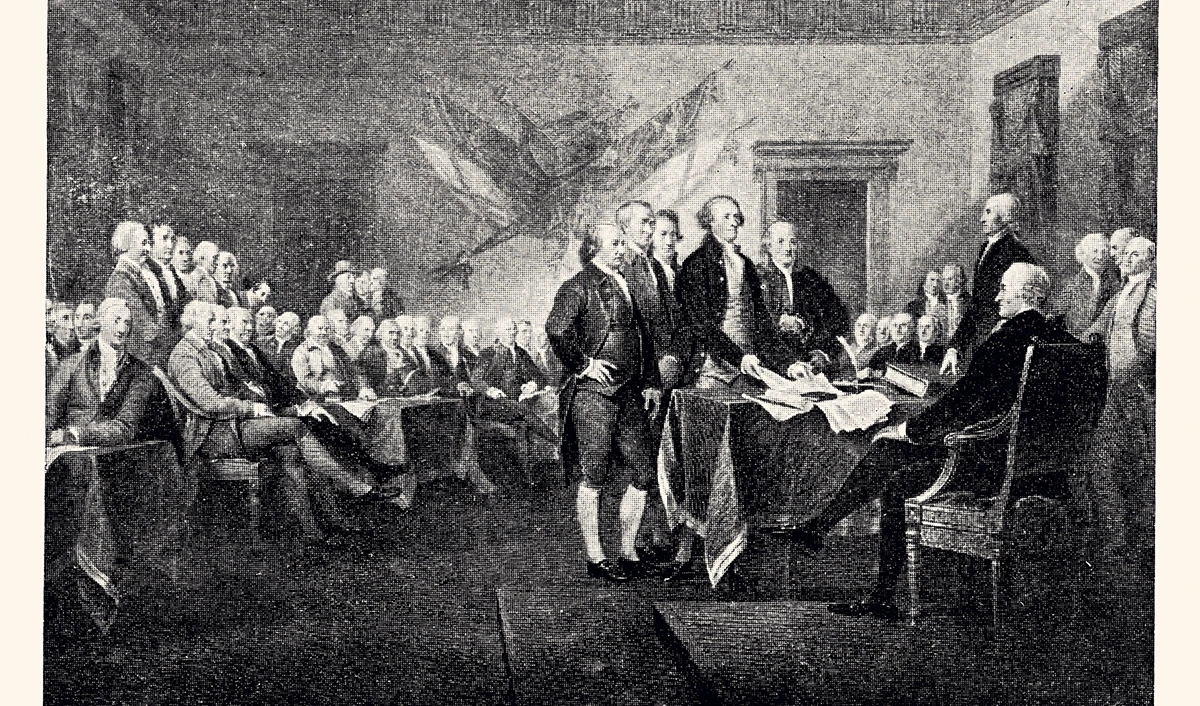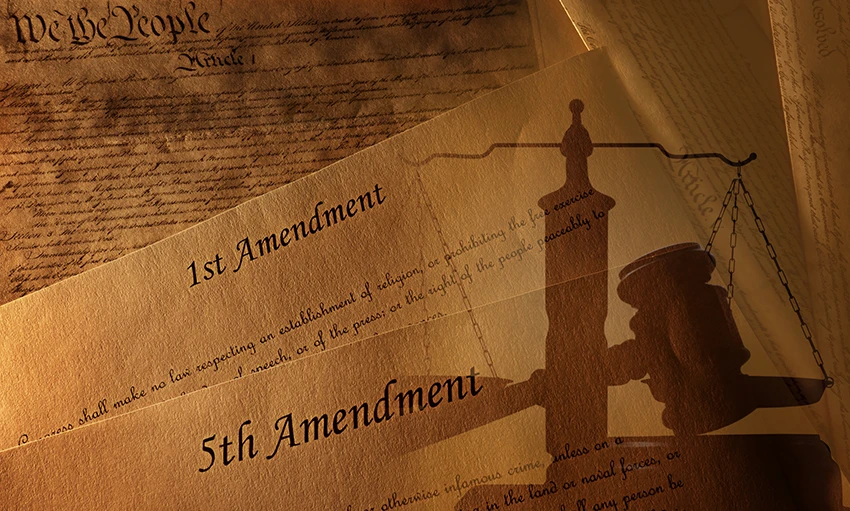News
Animoto: How to Make a Business Presentation (12 Easy Tips)
Declare Your Patriotism
According to Merriam-Webster:
The term "patriotism" has its roots in ancient Greek. It originates from the word "patrios," meaning "of one's father" or "of one's ancestors." This evolved into "patriotes," meaning "fellow countryman," and then entered French as "patriote.” Ultimately, it came into English via the French word "patriote," which was used to describe someone who shared a love of their country and allegiance with others, especially during periods of political or religious conflict.
It is in times of conflict that patriotism is most important.
Who's the patriot?
- "Our Country: Love It or Leave It"
- "Black Lives Matter"
- "We Go Where They Go"
- "Make America Great Again"
Of course, it's a trick question. The answer is E: All of the Above.
That's the difficult thing about political rhetoric. In a liberal democracy, we want, and even need, everyone to express themselves. Without a cacophony of voices, we’ll never achieve the synthesis of ideas essential to governing a disparate people.
"I disapprove of what you say, but I will defend to the death your right to say it," is often attributed to Voltaire. Ironically, he never said it. It was actually written by Evelyn Beatrice Hall in her 1906 biography of Voltaire, "The Friends of Voltaire."

Voltaire's primary rallying cry was “écrasez l’infâme” (“let us crush the evil thing”), referring to religious superstition. Voltaire’s prolific, biting satire and philosophical writings generally attack every sort of tyranny, like Christian censorship. And unironically, he was intolerant of intolerance.
Contrary to our celebration on the Fourth of July, the Continental Congress voted on the second of July to declare independence. Then, signed the document on the fourth. The word “declare” comes from Latin “declarare,” from “de-” (thoroughly) and “clarare” (make clear). Today is the day we voted to make our opinions clear. The fourth is when we followed through on that decision.
Voltaire's writings include clever witticisms that disguise the foundations of liberal democracy and challenge the notion that humankind can ever really know anything.
Judge a man by his questions rather than by his answers,
The right to question a king was impossible in the 18th century, and yet the writers of the French Enlightenment did just that to build momentum for Bastille Day and the first Democratic Revolution. In the Declaration of Independence, American colonists itemized the grievances they carried against King George and the government, but they were not fundamentally questioning the laws, rights and privileges of Englishmen. The French, on the other hand, were seeking to overturn "l'etat, c'est moi" as the rule of law.
The more I read, the more I acquire, the more certain I am that I know nothing.

You think the American Revolution was the first? In fact, the signers of the Declaration of Independence note that they are seeking freedoms they believe they already have as Englishmen. Not seeking to destroy the Magna Carta (which celebrated its 810th birthday in June), but to uphold it. Writing the agreement with the feudal lords of England in 1215 to settle at least part of the constant warring in the British Isles, Edward proclaimed, "We furthermore grant and give to all the freemen of our realm, for ourselves and our heirs in perpetuity the liberties written below to have and to hold to them and their heirs from us and our heirs in perpetuity." [Pursuit of Liberty: Declaration of Independence Preamble]

and: "The city of London is to have all its ancient liberties and customs. Moreover we wish and grant that all other cities and boroughs and vills and the barons of the Cinque Ports and all ports are to have all their liberties and free customs." [Powers Reserved for the States: Tenth Amendment]
and: "No freeman is to be taken or imprisoned or disseised of his free tenement or of his liberties or free customs, or outlawed or exiled or in any way ruined, nor will we go against such a man or send against him save by lawful judgement of his peers or by the law of the land. To no one will we sell or deny or delay right or justice." [Due Process: Fifth Amendment]
These documents that we hold up contain multitudes. They draw their content from Rousseau, Locke, Montesquieu and, my favorite, Voltaire. Instead of believing that "Great Minds Think Alike," he promoted that great minds should think.
My great-grandfather always took a moment to recite the Declaration of Independence at his Fourth of July barbeque as a way of teaching his grandchildren the reason for the holiday. If you'd like to follow suit, here's the text for a number of great American documents of patriotism.
Patrick Henry's "Give Me Liberty or Give Me Death"
Abraham Lincoln's Gettysburg Address
Martin Luther King, Jr.'s "I Have a Dream"
George Washington's Farewell Address
Frederick Douglass's "What to the Slave Is the Fourth of July?"
Franklin D. Roosevelt's First Inaugural Address
John F. Kennedy's Inaugural Address
Ronald Reagan's "Berlin Wall Speech"
So whether you wear a MAGA hat or want to burn the flag or both, it is the expression of political opinion that truly makes our country great. I urge you. I beg you. I need you to follow Voltaire, and “dare to think for yourself” even if you disagree with me.
